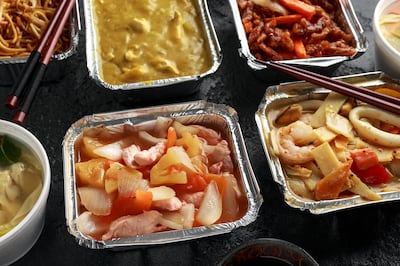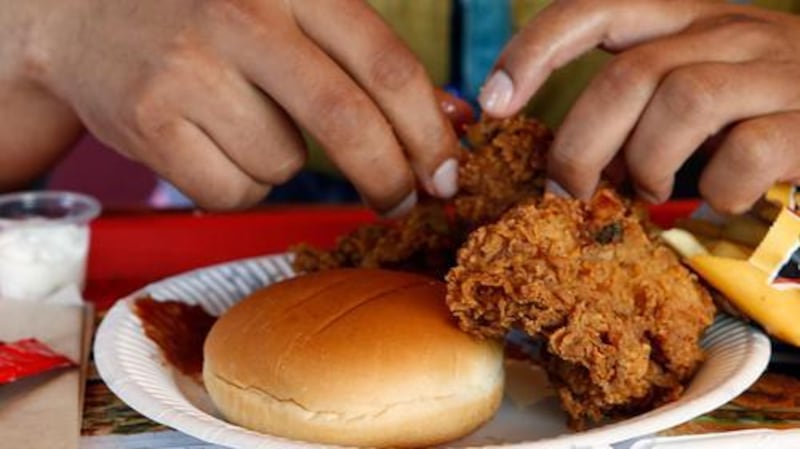Overeating at iftar and breaking fasts with unhealthy food could lead to trips to the hospital for many during Ramadan, experts have warned.
Doctors told The National how the UAE's emergency departments are often inundated with people suffering from severe indigestion, caused by gorging on food after fasting throughout the day.
In some cases, overeating after fasting could have longer-term health implications, beyond indigestion.
“The habit of gorging on food too quickly when breaking fast leads to the most common complaint we get, which is indigestion, with some experiencing vomiting and reflux,” said Dr Zuhair Alsharafi, Burjeel Holdings' corporate director of Emergency Services.
“This all comes from eating large amounts of food in a short period of time after fasting for many hours and shocking the body with lots of carbohydrates, as well as fat and unhealthy food.
“We see the majority of patients [during Ramadan] coming to the emergency room in the first two hours straight after iftar.”
Most of these patients are suffering from indigestion, he added.
Consult doctors
Patients with underlying health conditions such as diabetes, high blood pressure, renal disease and migraine, as well as cancer patients on chemotherapy, are also a common sight in emergency rooms immediately after iftar.
Dr Alsharafi warned that patients with these conditions should take advice from doctors before fasting, as the consequences could be severe.
“This is where I see red flags. I'm talking about the patients with diabetes, cancer, renal disease and even those suffering from migraines and pregnant patients,” he said.
“We have seen diabetics with hypoglycaemia or hyperglycaemia because they took their medications at the wrong times or took higher or lower doses than required.
“There were also cancer patients who presented themselves to the emergency department with nausea, vomiting and dehydration from fasting a few days after their chemotherapy session.
“Those with chronic diseases need to see their doctors, discuss their intake of their medications and establish a management plan during Ramadan.”

It is not only those with pre-existing health conditions who are vulnerable to the effects of overeating during iftar.
“The general public need to adjust their diet into a healthier eating habits and healthier eating style to be more conscious of what they eat and the way they eat,” said Dr Alsharafi.
You are what you eat
Identifying the right foods to ensure your body is not overly impacted by breaking fast, is crucial, said another expert.
“After fasting for extended hours the human body is not prepared for a sudden influx of large quantities of food,” said Dr Zaid Mahdi Mohammed, head of the emergency department at the Canadian Specialist Hospital in Dubai.
“Opt for meals that provide a balance of carbohydrates, protein and healthy fats, avoiding excessive consumption of rich and fatty foods.
“Eat slowly and mindfully to aid digestion and prevent overindulgence and drink adequate fluids during non-fasting hours to maintain hydration.”
The overconsumption of food can cause or exacerbate health issues including gastroesophageal reflux disease, leading to discomfort and long-term oesophagal damage.
Overeating can also stretch the stomach, causing bloating, discomfort and a feeling of fullness that can be particularly distressing after a day of fasting.
Rich, fatty meals can also trigger gallbladder attacks in people who have gallstones, resulting in severe abdominal pain, he said.
Dr Mohammed advised that Muslims break their fast with light, easily digestible foods and gradually increase intake over the evening.
Although rare, there is a risk of acute pancreatitis from overeating, characterised by inflammation of the pancreas and intense abdominal pain, added Dr Mohammed.
Failing to drink enough water during non-fasting hours can exacerbate digestive issues and impact overall well-being, he added.






